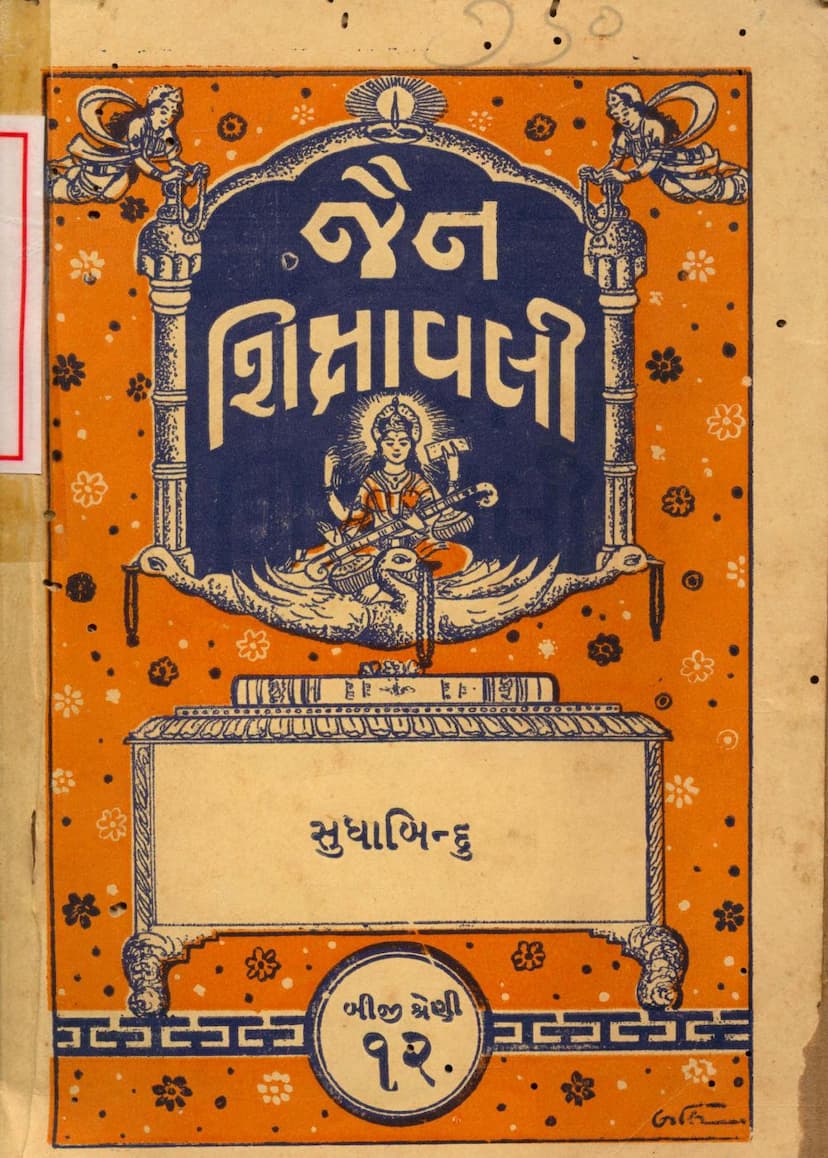Jain Shikshavali Sudhabindu
Added to library: September 2, 2025

Summary
This document is the Jain Shikshavali Sudhabindu, Second Series, Book Twelve, written by Param Pujya Pannyas Maharaj Shri Dhurdharvijayji and edited by Sahityavaridhi Shatavadhani Pandit Shri Dhirajlal Tokarshi Shah. It was published by Jain Sahitya Prakashan Mandir in Mumbai. The book is a collection of 174 "Sudhabindu" (drops of nectar), which are essentially insightful quotes or aphorisms offering wisdom and guidance on various aspects of life, spirituality, and conduct, particularly within the Jain tradition.
The text begins with introductory pages, including acknowledgments to various individuals and institutions that supported the publication, highlighting the collaborative effort involved. The editor explains that the collection was compiled from the notes of Maharaj Shri Dhurdharvijayji, who diligently recorded his thoughts and inspirations.
The core of the book is the collection of "Sudhabindu," which cover a wide range of themes:
- Spiritual and Ethical Conduct: Many aphorisms emphasize the importance of purity of thought, word, and deed, adherence to righteous principles, and the detrimental effects of negative emotions like anger, greed, and attachment. For example, points 1 and 2 discuss the supreme importance of pure God, Guru, and Dharma, comparing Dharma to a line of light in darkness. Point 11 advises against harming anyone but to strive to overcome attachment.
- Knowledge and Understanding: The text stresses the value of clear vision, deep introspection, and a continuous pursuit of knowledge. It highlights that true understanding often lies in discerning the subtle aspects of things and not being swayed by superficial appearances. Point 43 compares life's complexities to locks with keys and suggests that experience or the guidance of the enlightened can help unravel them.
- Effort and Perseverance: Numerous points encourage sustained effort, patience, and steadfastness in the face of challenges. The importance of regular practice and not abandoning a task prematurely is emphasized. Point 7 advises continuous practice for difficult tasks, and point 8 states that giving up practice makes even easy tasks difficult.
- Self-Reflection and Introspection: The book repeatedly calls for self-examination, understanding one's own position before judging others, and being aware of one's own shortcomings. Point 25 urges reflection on one's own state before commenting on others, and point 32 emphasizes the importance of cultivating one's own virtues.
- Relationships and Social Conduct: The text offers guidance on how to interact with others, emphasizing the importance of respect, understanding, and avoiding harmful speech or actions. Point 34 advises caution in criticizing others, as it can lead to unfairness and missed opportunities.
- The Nature of Reality and Illusion: Several aphorisms delve into the impermanence of worldly things, the illusory nature of material attachments, and the importance of detachment. Point 138 notes that happy memories feel sweet in sorrowful times, while happy memories feel bitter in sorrowful times. Point 87 distinguishes between attachment to a thing and the actual thing itself.
- The Path to Liberation (Moksha): While not explicitly detailing complex philosophical arguments, the underlying theme points towards spiritual liberation through right conduct, knowledge, and detachment. Point 38 suggests that liberation is near for those who are free from unnecessary things and negative tendencies.
- Practical Wisdom: The book offers practical advice on a variety of life situations, from managing resources and understanding the value of time to cultivating positive habits and overcoming negative ones. Point 145 emphasizes that if you don't want to become ridiculous, stop making others ridiculous.
The "Sudhabindu" are presented as concise, impactful statements designed to offer immediate wisdom and encourage reflection. They aim to provide guidance for a meaningful and spiritually enriching life, promoting virtues like compassion, detachment, wisdom, and perseverance. The collection serves as a spiritual guide, offering "drops of nectar" for the soul's nourishment and growth.